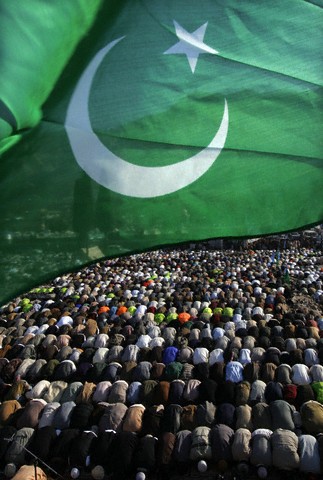Islam, modernity and Pakistan

Advertisement
The current political and ideological problems surrounding Pakistan are just a microcosm of the crisis of the Islamic civilization. Originally, Islam gave a revolutionary message of human brotherhood, social equality and justice, rule of law, moderation, quest for knowledge, and human advancement. As long as Muslims adhered to these principles in practice, they expanded the frontiers of knowledge.
The decline of the Islamic civilization over the past few centuries was the direct result of the divergence between true Islamic teachings and the actual conduct of Muslims.
The causes of the crisis of the Islamic civilization can be traced to the general stagnation of intellectual thought marked by the absence of critical enquiry and creativity, lack of development of political institutions to make them accountable to the people, and a decadent culture steeped in superstitions and fatalism. On the other hand, the 15th century saw the gradual rise of the West European nations awakened by the Renaissance, animated by the desire for exploration and discovery, and later strengthened by the growth of sciences and the onset of the Industrial Revolution. These qualities enabled the West European nations to conquer and colonize not only the Americas but also large parts of Africa and Asia.
Consequently, Muslim kingdoms and societies collapsed in the face of the onslaught of the expansionist European nations despite lonely efforts to stem the tidal wave of Western imperialism. Although many of these Muslim countries were able to regain independence in some form or the other after World War II, they still remain under the political, military, economic, scientific, technological and cultural domination of the West.
The challenges posed by modernity are intellectual, political, economic, scientific, technological and cultural. In the intellectual field, modernity demands freedom of thought and inquiry so as to allow the questioning of received wisdom and judge their utility and efficacy in the light of new developments. Stagnation of thought, which prevents progressive thinking, is a sure recipe for keeping a nation backward in the human race for progress and prosperity. In Iqbal’s view, the most important cause for the decline of the Muslims was their abdication of the principle of Ijtihad.
After Khilafat-e-Rashida, Islamic political thought failed to develop in accordance with the real Islamic teachings which enjoined the management of state affairs in consultation with the people. Instead, monarchies and hereditary rule took hold in the Muslim world like in the rest of the world.
The modern Western political thought by way of contrast moved ahead by developing the institution of representative democracy in which the people periodically elected their representatives to rule over them, thus involving them indirectly in the management of state affairs and ensuring peaceful succession of power on a periodic basis.
A cursory glance at the Muslim world which is mostly ruled by monarchies, dictatorships or authoritarian governments in various forms, shows that the Muslim world is still struggling intellectually to resolve the issues of consultation with the people.
There was a time when Muslim scholars and scientists were at the frontiers of human knowledge. Sadly, as Muslims ignored Islamic injunctions regarding the quest for knowledge, they gradually lost their lead over other nations in this field. Western nations, by focusing on the acquisition of knowledge, especially the development of sciences, industry and technology, forged ahead leaving Muslims far behind.
Unfortunately, with the passage of time the gap between the advanced nations and the Muslim countries in scientific, technological and economic development is widening.
Actually, there are no contradictions between the basic principles of Islam and the demands of modernity. Muslims simply need to practice what Islam teaches by imbibing the qualities of dynamism and struggle, equipping themselves with the latest advances in science and technology, promoting freedom of expression and thought, encouraging creativity, developing democratic political institutions with a focus on human development and welfare, and accelerating economic development.
Pakistan’s repeated crises are the logical result of the abdication of Islam’s true teachings by our leaders and people at large. Consequently, what we have is a repressive, exploitative and undemocratic system of governance. Whereas Islam, by emphasizing the principle of consultation in governance, supports a democratic form of government, Pakistan’s history is replete with instances of either military dictatorships or authoritarian governments in various shapes.
The current hybrid system is just a continuation of that practice in new clothing. Instead of social and economic justice, we have economic inequalities and social repression of the weak.
Islam enjoins rule of law but in Pakistan the people are at the mercy of the whims of the rulers who are swayed more by their vested interests rather than the welfare of the people at large. Despite claims to the contrary by the present Pakistan Tehreek-e-Insaf (PTI) government, the country continues to suffer from the neglect of the education sector, sciences and technology in particular.
Advertisement






